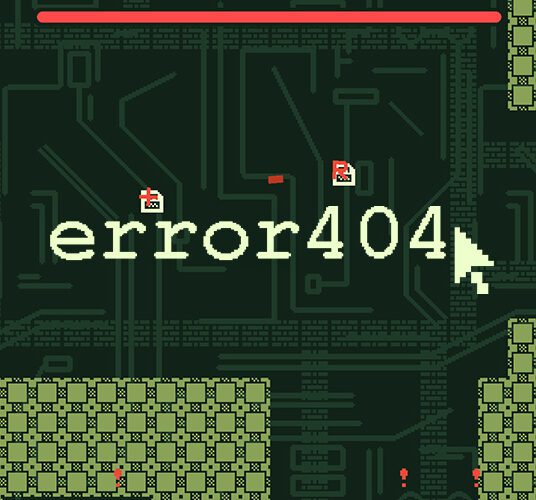






Acting BA (Hons)
Length:
3 years
UCAS Code:
W410
Institution Code:
N39
Sandwich courses:
Creative Professional Development (1 year, Level 5 diploma), or Creative Computing (1 year, Level 5 diploma), available between years 2 & 3
Develop the creative, technical and professional skills required to become a successful actor for stage, screen and recorded media.
This course offers an unparalleled, vibrant and supportive environment for aspiring actors seeking to sustain a career in theatre, screen and recorded media. Led by a team of specialist and highly experienced teachers, professionals and researchers, you will develop the key imaginative, practical and critical skills for working confidently across a range of live artistic disciplines and emerging innovations in recorded media.
Why study with us
- Integrate practical training voice, movement and acting classes to explore a wide range of practices and techniques, encouraging you tap into your unique emotional and creative potential.
- Explore and refine performance techniques through studio and digital training methods supported by expert staff and visiting professionals, connecting you directly to the latest practices in industry.
- Collaborate with our screen-based courses in film, animation, visual effects, and games, as well as fashion and fine arts, developing cross-disciplinary skills and links with the wider industry.
- Explore the latest developments in performance through different live and recorded contexts and gain skills across various technologies including sound and camera work.
- Graduate with headshots, website, showreel, as well as audition, interview, self-taping and proactive networking skills.
Our partnership with Spotlight offers access to the largest online casting resource in the UK, as well as a wealth of support, content and events specifically tailored towards graduate actors.

“The incredible and intensive training has pushed me to create work that I’d never previously thought myself capable of and my tutors have helped me in every way possible.”
Sophie Stagg | BA (Hons) Acting
Course Content
Year 1
- Introduction to core skills and concepts of acting
- Working from self with workshops in voice and movement for acting
- Introduction to skills for scene study, voice overs, and film
- Introduction to text analysis, character work and animal work
- Contextual study relevant to practical work
Year 2
- Advancing core skills and concepts of acting
- Working with various acting techniques across contemporary digital contexts
- Working across disciplines in collaboration with other courses
- Showreel and industry development
- Masterclasses in movement, voice, and specialised techniques such as stage fighting
- Advanced Contextual study relevant to practical work
Year 3
- Professional Preparation for career and employability
- Masterclasses in acting for various applications
- Industry engagement
- Showreel, headshots and website as appropriate to chosen career path
- Final research project
- Public performance as part of final project
Careers Information
BA (Hons) Acting will equip you with the skills and knowledge you need to succeed in the dynamic and ever-changing world of performance. Not only will you be well-prepared to secure work as an actor in traditional contexts such as stage, film and TV, but you’ll also be encouraged to explore new and innovative performance practices at the edges of the specialism.
Typical career paths include
- Acting for stage and screen
- Directing for stage and screen
- Voiceover for radio and games
- Teaching
- Performance artist
- Broadcast presenting
- Community arts
- Drama therapy
- Arts administration
You’ll also get specialist creative careers advice from our Business and Employability Team to help support you as you plan your career.
The Audition Process
Norwich University of the Arts announces its BA Acting Audition dates! Spaces are limited so we suggested that you book early.
- December 13th
- January 17th
- February 3
- February 10
- February 28
- March 13
- April 17
- May 1
Offers are typically made within two weeks of the audition.
Tabbed Section
- Two monologues – one serious, one comic.
- Stick with contemporary texts and try to focus on film, plays or radio dramas.
- Choose two contrasting monologues that allow you to show that something has changed for the character during the course of the performance.
- Make them something that you can relate to, both in terms of the character’s age and their personality.
- Approximately three minutes each.
- Read the entire play/script that the monologue comes from so you understand the character’s journey.
- If the story take place in a different time or environment, research those so you can imagine yourself there and the conditions the character face.
- Ask yourself what happens in the monologue? What changes? What is at stake for the character?
- Know who you are speaking to and where they are.
- Create a time and space that is apart from the everyday and warm-up your body and voice.
- Think of the performance as a little play – think about shifts in tone, energy, pacing, mood, a sense of urgency.
- Consider how to use your voice and body and make creative choices in line with your character and the situation they’re in.
- Don’t just memorise lines but practice what your character is doing both when speaking and in-between lines.
- The process – Starts with a group practical workshop, typically a warmup. Students then wait with Student Ambassadors whilst each applicant goes to perform their monologues in front of a small panel. The panel will direct the applicant after their initial performance, and then lead straight into a short interview. After everyone has auditioned, the group will be lead on a campus tour.
- Arrive early!
- Eat at least half an hour before and bring water with you.
- Dress in clothes you can move in and don’t wear jewellery that dangles.
- Be yourself!
- The process – pre-record your audition, submit your video through the online portal, then take part in an online interview/review.
- Check the lighting is good enough to see your face and body.
- Don’t obscure your face with clothing, accessories etc.
- Check the positioning of your camera and that your background is plain and suitable.
- Triple check your video before submission. Check technical aspects too, that the audio and visuals are fine.
- During the online interview, you might be asked to perform one of your chosen monologues and be directed.
Tabbed Section
Typical UK offers
A / AS Levels – GCE
GCE A/AS Levels 3 A-level qualifications at grades BCC (104 UCAS Tariff points) or above. Where candidates are not taking 3 A-levels, Norwich University of the Arts will consider combinations of A-level/AS-level and other Level 3 qualifications.
BTEC Extended Diploma (QCF or RQF)
Distinction, Merit, Merit in an art, design or media related subject
BTEC Diploma (QCF or RQF)
Distinction*, Distinction* in an art, design or media related subject
T Levels
A T Level in any subject with overall grade Merit or above
UAL Extended Diploma
Merit
UAL Level 3 Foundation Diploma in Art and Design
Pass
UAL Level 4 Foundation Diploma in Art and Design
Pass
Foundation Diploma in Art and Design
Pass
Access to Higher Education Diploma (Art and Design)
Pass
International Baccalaureate Diploma
A minimum of 26 points
Norwich University of the Arts welcomes applicants of all ages from all backgrounds. Your application will be primarily assessed through your portfolio (if required), responses to questions asked and personal statement, so even if you have no formal qualifications or do not meet our typical offers it can still be worth applying.
If you are studying at the time of your application and your application is successful it is likely that you will receive a conditional offer.
If the qualification that you are studying is not shown, do not worry as we are able to accept other pre-entry qualifications as well as combinations of different qualifications. Please do contact our Student Recruitment Team if you have any queries.
International applications
We accept qualifications from all over the world. To find our entry requirements from a specific country, please check our dedicated international pages.
Most international students are required to hold an English language qualification. Applicants are required to have a minimum UKVI approved IELTS exam score of 6.0 overall, with a minimum of 5.5 in each section. Equivalent English language qualifications are acceptable such as, IB English language syllabus A or B/English Literature (Grade 4).
We also accept some alternative English qualifications. Learn more about our English entry requirements.
You can email us on international@norwichuni.ac.uk if you’d like to discuss your application individually.
2024/25 University fees for new entrants
Norwich University of the Arts will assess students’ tuition fee status using the guidance provided by the UK Council for International Student Affairs
Students from the UK or Ireland and EU students with ‘Settled’ or ‘Pre-Settled’ status will be charged ‘Home’ fees if they meet the relevant residency requirements. They will usually be eligible for a tuition fee loan from the UK government, meaning that they won’t have to pay Norwich University of the Arts’ tuition fees upfront.
Students who do not meet the necessary residency requirements will usually be charged ‘Overseas’ fees and will not be eligible for the UK government tuition fee loan. Since 2021/22, this includes new entrants from the EU, EEA, and Switzerland who do not have ‘Settled’ or ‘Pre-Settled’ status, because the UK has now formally left the EU.
| Fee status | Course | Annual fee |
|---|---|---|
| Home | Undergraduate degree (full-time three and four year degree) | £9,250 |
| Overseas | Undergraduate degree (full-time three and four year degree) | £18,000 |
Inflation in subsequent years
The rules for inflation on fees in subsequent years depend on the type of fee status and level.
- For Home undergraduate students starting in 2024, inflation may be applied to your fees in later years, if the UK government were to increase the fee cap beyond the current limit of £9,250 per year. If such an increase were to apply, we would confirm this in advance to you of each academic year, and we would limit the increase to the maximum allowed by the Office for Students.
- For Overseas undergraduate students starting in 2024, inflation will be applied to your fees in later years. We will confirm this in advance to you of each academic year, and we will limit the increase to no more than the Office for Students’ recommended inflationary measure, which is RPI-X. RPI-X is calculated by the Office for Budget Responsibility. In setting fees for the following year, we will use the Office for Budget Responsibility’s RPI-X forecast for quarter 3 of the relevant year.
For Home and overseas postgraduate degree students starting in 2024, fees will remain the same for each year of your course.
Financial support for UK students in 2024
Tuition fee loans and loans for living costs are usually available to UK and some EU students, as well as non-repayable Norwich University of the Arts bursaries based on family income. Find out more about applying for funding.
International students
We offer a range of scholarships for international students to support your studies with us.
- Group briefings
- Academic tutorials
- Group tutorials
- Lectures
- Workshops
- Critiques (crits)
- Seminars
- Finished pieces of work
- Presentations
- Written work
- Your research
- A reflective journal
Between Years 2 and 3 of this course, you’ll have the opportunity to undertake one of the following additional qualifications:
Creative Professional Development (1 year, Level 5 Diploma)
Our Creative Professional Development Diploma gives you the chance to spend a year exploring your post-uni job options through a structured programme of input sessions and work-based learning. This year offers two much-sought-after industry placements – the first lasting six weeks, the second 12 weeks, and a group project or ‘hackathon’ exploring freelancing and business start-up.
Creative Computing (1 year, Level 5 Diploma)
Our Creative Computing Diploma introduces you to coding and computational skills that will advance and complement your creative practice. No prior experience of coding is needed, just a curiosity about creative computing and a desire to push your own practice into new realms. You’ll also develop a wider knowledge of the creative tech industries, available roles and opportunities.
Teaching Staff
News
@norwichuniarts
Have you ordered your new prospectus? We have some exciting new courses for next year! Physical and digital copies are available now.
Follow the link in our bio and grab yours today
View this post

Norwich Student wins at Ukie Student Game Jam 2024
BA (Hons) Games Art and Design student Charlie O’Shea was awarded Best Moment-to-Moment Gameplay award for his game ‘error404’.
View news article

Claudy Woods
BA (Hons) Photography student Claudy Woods tells us about her experience attending the Year 3 London Portfolio crit, and how it has affected her work and practice.
View blog
Please select a button type..







































